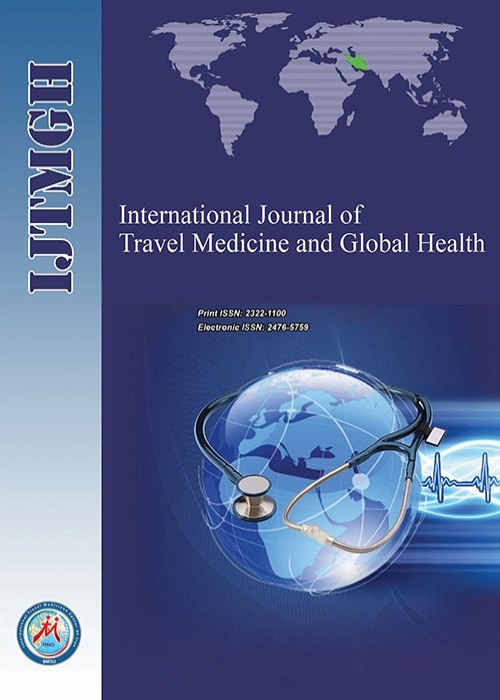Knowledge, Attitude and Practices Regarding Extreme Environments and Cold Adaptation at Extreme Altitudes on the Himalayan Ranges
Author(s):
Article Type:
Research/Original Article (دارای رتبه معتبر)
Abstract:
Introduction
Extreme-altitudes (5500 m/18045 ft and higher) pose environmental, psychophysiological, infrastructural, logistic, and ergonomic challenges that question explorer’s adaptability and mission-efficiency due to isolation, monotony, intimidating environment and terse health conditions. The assessment of an explorer’s comprehensive adaptability in extreme-altitudes is of paramount importance in ensuring mission-preparedness. Knowledge, attitude, and practices (KAP) of explorers staying on extreme-altitudes was assessed through personal interview technique. Methods
125 healthy, acclimatized, mountain-trained explorers staying above 4570 m/15 000 ft in winter-season for at least 30 days on extreme-altitudes were assessed by a single cross-sectional study through personal interviews on KAP related to extreme-altitude and cold-adaptation. Results
Mean duration of stay on extreme-altitude was 55.7 days. All explorers knew about difficulties and health-problems at extreme-altitude. All explorers felt that mountain-training and acclimatization were beneficial. 92% felt that mission tenure of 90 days on the extreme-altitude was adequate. 92.8% felt they were adequately trained for the extreme-altitude; however, only 52% felt confident about health-training. 66.4% did preventive rewarming of extremities. 66.4% regularly smoked/chewed tobacco. 57.6% had sleep problems and 64% had altered appetite. 26.4% felt difficulties related to living conditions, infrastructure, and logistics. Conclusion
Explorers at extreme-altitude exhibited adequate knowledge and performed activities with progressive attitude and healthy practices. Explorers endured altered psychophysiology at extreme-altitude and regarded the utility of training and acclimatization programs. Knowledge-practice gap existed towards tobacco consumption. There was a felt need for the improvement of living conditions, infrastructure, logistics, and health-related training.Keywords:
Language:
English
Published:
International Journal of Travel Medicine and Global Health, Volume:8 Issue: 1, Winter 2020
Pages:
18 to 21
magiran.com/p2121242
دانلود و مطالعه متن این مقاله با یکی از روشهای زیر امکان پذیر است:
اشتراک شخصی
با عضویت و پرداخت آنلاین حق اشتراک یکساله به مبلغ 1,390,000ريال میتوانید 70 عنوان مطلب دانلود کنید!
اشتراک سازمانی
به کتابخانه دانشگاه یا محل کار خود پیشنهاد کنید تا اشتراک سازمانی این پایگاه را برای دسترسی نامحدود همه کاربران به متن مطالب تهیه نمایند!
توجه!
- حق عضویت دریافتی صرف حمایت از نشریات عضو و نگهداری، تکمیل و توسعه مگیران میشود.
- پرداخت حق اشتراک و دانلود مقالات اجازه بازنشر آن در سایر رسانههای چاپی و دیجیتال را به کاربر نمیدهد.
دسترسی سراسری کاربران دانشگاه پیام نور!
اعضای هیئت علمی و دانشجویان دانشگاه پیام نور در سراسر کشور، در صورت ثبت نام با ایمیل دانشگاهی، تا پایان فروردین ماه 1403 به مقالات سایت دسترسی خواهند داشت!
In order to view content subscription is required
Personal subscription
Subscribe magiran.com for 70 € euros via PayPal and download 70 articles during a year.
Organization subscription
Please contact us to subscribe your university or library for unlimited access!


